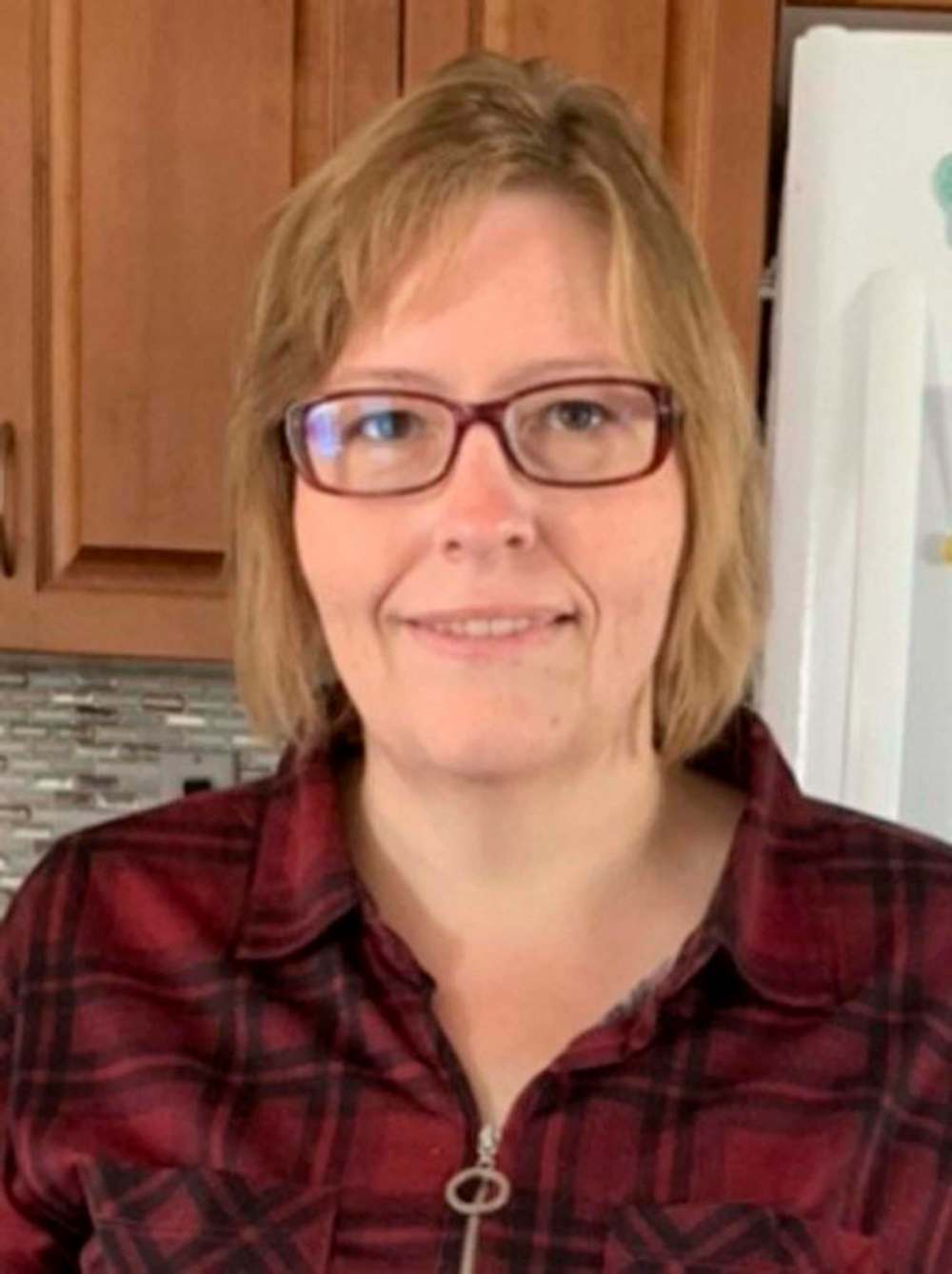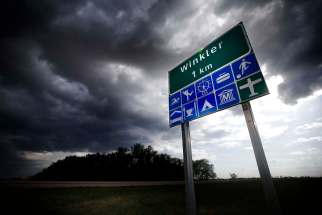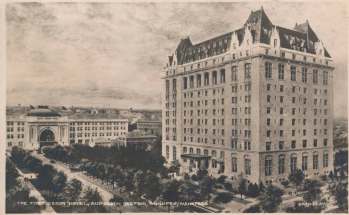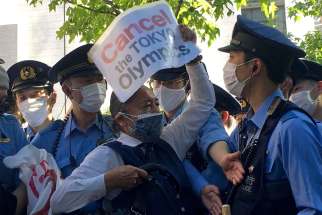Vaccine fears fuel exodus from Winkler area Low German-speaking Mennonite families fleeing jobs, homes for Mexico, Central America nations
Read this article for free:
or
Already have an account? Log in here »
To continue reading, please subscribe:
Monthly Digital Subscription
$0 for the first 4 weeks*
- Enjoy unlimited reading on winnipegfreepress.com
- Read the E-Edition, our digital replica newspaper
- Access News Break, our award-winning app
- Play interactive puzzles
*No charge for 4 weeks then price increases to the regular rate of $19.00 plus GST every four weeks. Offer available to new and qualified returning subscribers only. Cancel any time.
Monthly Digital Subscription
$4.75/week*
- Enjoy unlimited reading on winnipegfreepress.com
- Read the E-Edition, our digital replica newspaper
- Access News Break, our award-winning app
- Play interactive puzzles
*Billed as $19 plus GST every four weeks. Cancel any time.
To continue reading, please subscribe:
Add Free Press access to your Brandon Sun subscription for only an additional
$1 for the first 4 weeks*
*Your next subscription payment will increase by $1.00 and you will be charged $16.99 plus GST for four weeks. After four weeks, your payment will increase to $23.99 plus GST every four weeks.
Read unlimited articles for free today:
or
Already have an account? Log in here »
Hey there, time traveller!
This article was published 19/07/2021 (1602 days ago), so information in it may no longer be current.
Some residents of Winkler and the surrounding municipalities who are opposed to COVID-19 vaccinations have chosen to leave Canada to avoid getting the injection.
Prompted both by fears of safety of the vaccines and worries that governments will soon require them to show proof of vaccination to travel, more than 100 Low German-speaking Mennonites from southern Manitoba have left the country in the last three months, with more likely to follow, a Winkler immigration consultant said.
“In the last three months, people are scattering out of Manitoba,” said Bolivian-born Mary Friesen, who has lived in Canada for 21 years. “They are trying to get out of Manitoba as fast as possible.”
Friesen knows of 18 families, most with at least four children, who have moved to Mexico, Paraguay or Bolivia from Winkler or the nearby municipalities of Stanley and Rhineland.

Recent government campaigns encouraging people to get vaccinated against COVID-19 have prompted the exodus, says Friesen, with people leaving jobs and homes behind in order to cross the border before proof of vaccination becomes a requirement of travel.
“The reason to leave is they are afraid of the vaccine itself and they don’t want the vaccine,” she says.
Winkler Mayor Martin Harder said Low German-speaking Mennonites are not the only people in his city opposed to the vaccine but he has not heard of anyone leaving from that group.
As of Monday, just 26.8 per cent of residents aged 12 and up had been fully vaccinated in Winkler. The Rural Municipality of Stanley has the lowest uptake of the vaccines of any jurisdiction in the province, with only 14 per cent of eligible population having received two doses.
Conservative Low German-speaking people — known as Dietsche (pronounced Deet-sha) — make up as much as one-quarter of the estimated 25,000 people living in Winkler and the surrounding Stanley municipality, says a longtime community worker with that population.

“You can’t throw a stone without hitting someone with a connection to Mexico,” said Tina Fehr Kehler, estimating 75 families move to the area annually. Kehler worked with Low German Mennonites for Mennonite Central Committee Manitoba for 13 years before the program was cancelled in 2019.
Kehler says this is not necessarily a homogenous group of Mennonites who all attend the same church, but a looser association of people who have roots in Latin America and often are dual citizens of Canada and countries such as Mexico, Paraguay, Bolivia or Belize.
Often characterized as transnational Mennonites, this is a population that already moves frequently between Canada and Latin American countries for economic or family reasons, but pandemic restrictions in Canada may have made life here untenable for some, said Ben Nobbs-Thiessen, chair of Mennonite Studies at the University of Winnipeg.
“We’ve all lived through a year of intense restrictions,” he said, adding that public-health measures may be less in places like Mexico or Bolivia, where many Mennonites live in colonies away from the rest of the population.
“The restrictions don’t mean the same thing in a colony in Bolivia.”
wfppullquote:
“Suffering is part of life, that’s just accepted.” – Tina Fehr Kehler:wfppullquote
In Manitoba, some Dietsche are identifiable by their appearance, with women generally wearing black kerchiefs, below-the-knee dark floral patterned dresses and socks with sandals. Men often wear Western style shirts, jeans and cowboy boots. Kehler said this group would minimize contact with the broader society, take direction from their church leaders and avoid higher education.
Kehler said people in this group also have a stoic perspective, resulting in less fear of becoming sick or even dying from COVID-19, if they accept the premise that it exists, said Kehler.
“Suffering is part of life, that’s just accepted,” she said.
Instead of viewing the vaccine as a life-saving public health measure, Friesen said many Dietsche see the government vaccination efforts as a means to control them. They have a complicated relationship with government that goes back decades, with the Dietsche willing to file income tax returns in order to collect child tax benefits and GST rebates but less willing to comply with other duties of citizenship, she said.
“They want some things from the government if it benefits them. When it comes to voting or vaccination or the things the government wants them to do, then it’s a no,” said Friesen.
“They want some things from the government if it benefits them. When it comes to voting or vaccination or the things the government wants them to do, then it’s a no.” – Mary Friesen
The distrust of government among the Dietsche goes back at least a century, says Selkirk lawyer Blake Hamm, who assists them with legal issues around resettlement in Canada.
Many of their ancestors moved to southern Manitoba from Ukraine in large Mennonite migrations beginning in 1874. Nearly five decades later, after the federal government reneged on their promise to allow Mennonites to control their children’s education, thousands of Low German speaking Mennonites moved to Mexico or South America. The following generations kept up contacts across the borders and maintained their Canadian citizenship, giving them the freedom to move back to Canada over the last few decades, said Hamm.
“There’s this relatively recent history of less than 100 years of people persecuted in Canada by different levels of government in Canada,” says Hamm, referring to fines and confiscated farm equipment when Mennonites didn’t comply with the new education requirement.
Kehler suggested low vaccine uptake in this particular community is more of an issue of trust rather than language or science. Although suspicious of outsiders, she said most people in the Dietsche community own cellphones and share information through What’sApp, where they circulate videos perpetuating their biases.
“Right now there’s more fear about the vaccine (and) that it’s more dangerous than COVID-19,” Kehler said of rumours circulating that vaccinated people will die in two or three years.

Cellphone apps could be used as a way for government and community leaders to share fact-based information about vaccines, suggested Friesen.
She would be happy to circulate an official document from the provincial government stating that vaccines are voluntary to convince Dietsche they do not have to leave Canada or be forced to get vaccines.
“If they would see something signed by government officials saying what it is that would help,” she said of the documentation she thinks would change minds.
The Free Press made repeated attempts to interview Cordella Friesen, the recently-appointed faith outreach co-ordinator on the province’s vaccine implementation task force, but she was not made available for questions.
Hamm agreed that this population of Mennonites may need special attention if they are to understand the safety and efficacy of vaccinations and the urgency to get their shots.
“If it takes a village to raise a child, maybe it takes the entire community to combat vaccine-hesitancy.” – Blake Hamm
Instead of dismissing them as outsiders or uninformed, Hamm said governments and communities will have to make an extra effort to encourage vaccination in this population.
“They are our fellow Canadian citizens, they’re Manitobans and they’re our neighbours in our communities,” said Hamm, who speaks Low German and regularly travels to Winkler and Morden to meet clients.
“This is a public-health initiative and the more people vaccinated, the better for everyone.”
After his second dose, Hamm recorded a one-minute video he circulated on What’sApp, explaining in Low German that he felt just fine.
For Hamm, that short video is just one of many ways this population of insular Low German-speakers might be reached. He knows it’s a difficult task, but that doesn’t exempt government and communities from trying to connect.
“If it takes a village to raise a child,” he said. “Maybe it takes the entire community to combat vaccine-hesitancy.”
For her part, Friesen is advising patience, asking her clients to wait before giving up their Canadian homes and jobs and disrupting their children’s lives. She also encourages them to find good information, knowing if they continue to make decisions on misinformation, more will leave.
“Give it a month or two months and you will see another batch going,” she said.
brenda.suderman@freepress.mb.ca
The Free Press is committed to covering faith in Manitoba. If you appreciate that coverage, help us do more! Your contribution of $10, $25 or more will allow us to deepen our reporting about faith in the province. Thanks! BECOME A FAITH JOURNALISM SUPPORTER

Brenda Suderman has been a columnist in the Saturday paper since 2000, first writing about family entertainment, and about faith and religion since 2006.
Our newsroom depends on a growing audience of readers to power our journalism. If you are not a paid reader, please consider becoming a subscriber.
Our newsroom depends on its audience of readers to power our journalism. Thank you for your support.
The Free Press acknowledges the financial support it receives from members of the city’s faith community, which makes our coverage of religion possible.











